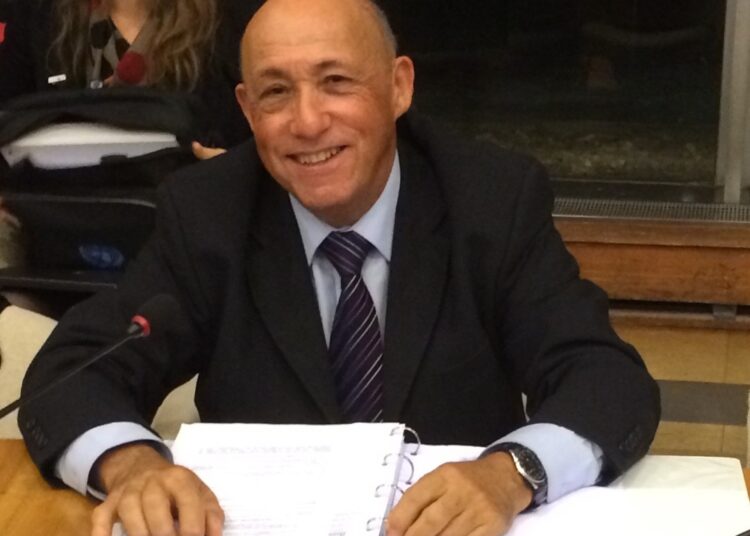The academic and veteran journalist Ivor Gaber has been honoured by the King for his work promoting media freedom around the world.
Professor Gaber, 66, professor of political journalism at Sussex University, has been made an OBE – an Officer of the Order of the British Empire for services to media freedom internationally.
He was included in the overseas and international section of the King’s Birthday Honours List.
Professor Gaber said: “I am enormously flattered to receive this award. Whenever I work in countries where media freedom is threatened or non-existent, I am struck by the immense courage and humility of the journalists who continue working, often in dangerous circumstances. I dedicate this award to them.”
Sussex University vice-chancellor Sasha Roseneil said: “I am delighted for Professor Gaber and extend my warm congratulations to him on behalf of the University of Sussex.”
Professor Roseneil added: “The honour is testament to the significant contribution Ivor has made in the pursuit of media freedom and freedom of expression throughout his career.”
The citation for the award highlighted Professor Gaber’s role at UNESCO – the United Nations Educational, Scientific and Cultural Organisation.
UNESCO is the United Nations body responsible for media issues and, as Britain’s representative, Professor Gaber began the process which led to the UN adopting a plan of action aimed at protecting journalists in danger from repressive governments and others.
He was described by Guy Berger, the then head of media freedom at UNESCO, as “the father of the UN plan of action”.
Since it was adopted in 2012, the plan has been credited with leading to a steady reduction in the number of journalists killed in the course of their work.
Professor Gaber has also worked with journalists in more than 20 countries, mostly new or unstable democracies, to help build and sustain media freedom.
This work has mainly been in Eastern European and sub-Saharan African countries.
He is currently working with journalists and human rights defenders in a number of former countries of the Soviet Union where media freedom is under threat.
Britain’s ambassador to UNESCO, Laura Davies, said: “It’s thanks to (Ivor)’s tireless and influential work at UNESCO that the whole UN has a globally recognised plan of action to improve the safety of journalists, an issue that is both challenging and critical.
“His work in this space reflects positively on the UK’s international reputation and I am delighted that it has been recognised in this manner.”
James Bridge, the secretary-general of the UK National Commission for UNESCO, said: “Ivor has made an outstanding contribution to the global agenda on safety of journalists, media freedom and media development.
“He initiated and then drove the discussion on the 2012 UN Plan of Action for the Safety of Journalists to a successful conclusion.”
Professor Gaber became the first professor of political journalism at Sussex in 2015 and also holds a masters degree in labour studies from the university.









